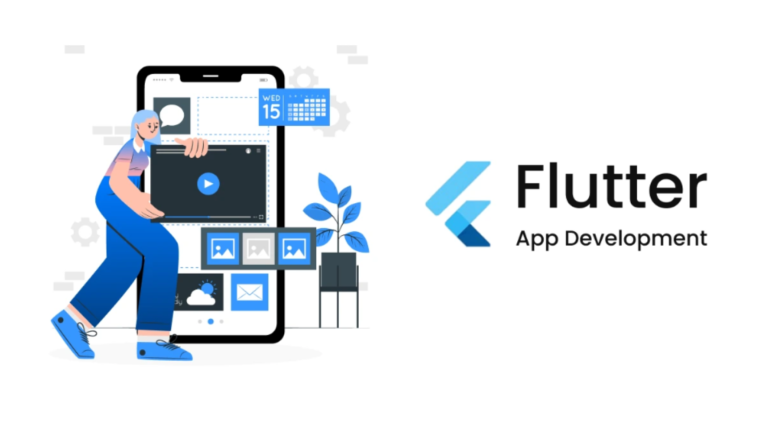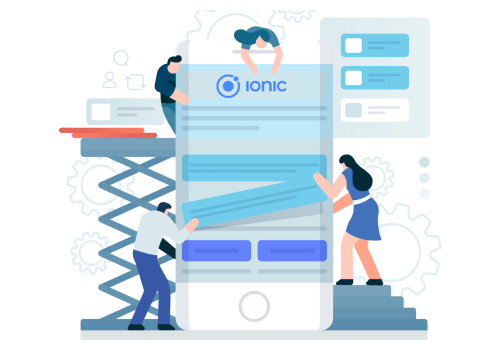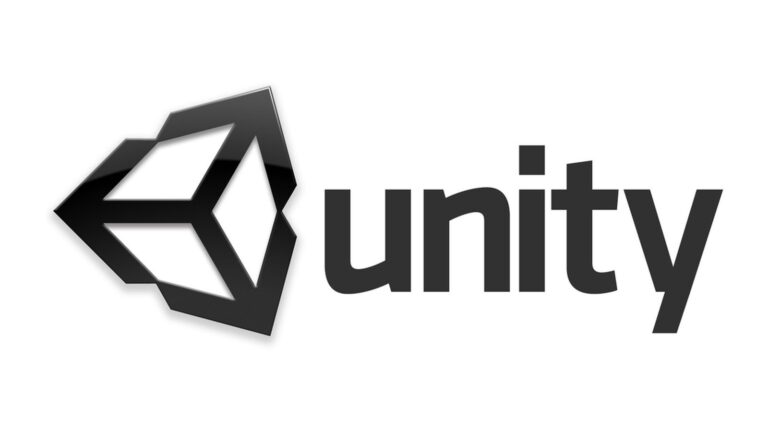Top 10 Mobile App Development Platforms in 2024

In the dynamic landscape of the 21st century, mobile applications have become indispensable, shaping the way individuals interact, work, and navigate daily life. The increased importance of mobile applications stems from their ability to seamlessly integrate into the fabric of modern society, providing unparalleled convenience and accessibility. With the advent of smartphones, these applications have transcended mere tools for communication, evolving into multifaceted platforms that cater to diverse needs. From banking and shopping to health monitoring and entertainment, mobile applications have streamlined processes and enhanced efficiency across various sectors. The ubiquity of smartphones has democratized information and services, ensuring that users can access resources at their fingertips, anytime and anywhere.
Moreover, the rapid advancements in technology have fueled innovation in app development, giving rise to sophisticated solutions that leverage artificial intelligence, augmented reality, and other cutting-edge technologies. As businesses increasingly pivot towards digital platforms, mobile applications have become pivotal in fostering customer engagement, brand loyalty, and overall market presence. In essence, the increased importance of mobile applications in the 21st century is emblematic of a paradigm shift in how individuals and businesses leverage technology to navigate the complexities of the modern world.
In a world full of apps on stores like Google Play and the App Store, making your app stand out can be tough. But there’s a trick to success in making apps. It all starts with picking the right place to build your app. Whether you’re a person with a cool idea for an app or a business owner wanting to grow online, choosing the best mobile app development platform is key. It makes your app creation journey easier. To help you with that, here are the top 10 mobile app development platforms in 2024. They’re like your partners in turning your digital dreams into reality. These platforms are more than just tools for coding. They create a whole system that helps you, whether you’re a creator or a business, by boosting creativity, making things efficient, and giving users a smooth experience. So, if you’re starting your digital adventure, these platforms are ready to be your friends in turning your ideas into successful apps.
1. Flutter

Flutter, developed by Google, stands as a robust open-source framework for app development, gaining prominence for its versatility.
Features:-
- Single Codebase: Flutter allows developers to use a single codebase to create applications for multiple platforms, including mobile, web, and desktop, streamlining the development process.
- Widget-Based Architecture: Its widget-based architecture enables the creation of a consistent and visually appealing user interface across different platforms, ensuring a seamless and unified user experience.
- Hot Reload: Flutter’s hot reload feature allows developers to make real-time changes to the code and see the results instantly, enhancing productivity and speeding up the debugging process.
- Expressive UIs: Flutter supports the development of expressive and flexible user interfaces, empowering developers to create visually stunning and customized designs for their applications.
- Growing Community: With a rapidly expanding community of developers, Flutter benefits from continuous support, updates, and a wealth of resources, making it an increasingly popular choice for app development.
2. React Native

React Native, a framework developed by Facebook stands at the forefront of cross-platform app development.
Features :-
- Cross-Platform Development: React Native enables developers to write code once and deploy it on multiple platforms, such as iOS and Android, saving time and effort in building separate codebases.
- JavaScript and React: Leveraging the familiar languages of JavaScript and React, React Native offers a smooth learning curve for developers, making it accessible and efficient for those already familiar with these technologies.
- Native Components: By utilizing native components, React Native ensures a high level of performance, resulting in apps that have a native look and feel while maintaining efficiency across different platforms.
- Hot Reloading: The hot reloading feature allows developers to see real-time changes in the app during development, speeding up the debugging process and enhancing overall productivity.
- Wide Industry Adoption: React Native has gained widespread adoption across various industries, demonstrating its reliability and effectiveness as a framework for cross-platform app development.
3. Xamarin

Xamarin, a Microsoft-owned framework, is a powerful tool for cross-platform app development.
Features:-
- Cross-Platform Compatibility: Xamarin allows developers to create cross-platform applications using a single shared codebase, reducing the need for separate development for iOS, Android, and Windows.
- C# Language: Leveraging the C# programming language, Xamarin provides a familiar and powerful coding environment for developers, facilitating a smooth learning curve and efficient development.
- Native-Like Performance: Xamarin offers native-like performance by compiling code into native binaries, ensuring that applications run seamlessly on each platform and providing a consistent user experience.
- Xamarin.Forms and Xamarin.Native: Xamarin.Forms enable the creation of a unified user interface across platforms, while Xamarin.Native allows for deeper platform-specific customization, offering flexibility in development.
- Visual Studio Integration: Seamless integration with Microsoft Visual Studio enhances the development experience, providing a comprehensive and efficient environment for building, testing, and debugging Xamarin applications.
4. Adobe Phonegap

Adobe PhoneGap, now known as Apache Cordova, is a popular open-source mobile app development framework. It allows developers to create cross-platform mobile applications using web technologies such as HTML, CSS, and JavaScript.
Features :-
- Web Technology Stack: Leveraging HTML, CSS, and JavaScript, PhoneGap allows developers to build apps using familiar web development languages, facilitating a more straightforward transition for web developers into mobile app development.
- Access to Native Device Features: PhoneGap provides access to native device functionalities through plugins, allowing developers to incorporate features like camera access, geolocation, and device sensors into their applications seamlessly.
- Simplified Development Process: With its ease of use and straightforward development process, PhoneGap simplifies mobile app development, making it an attractive option for developers looking for efficiency and a quick learning curve.
- Open-Source Framework: As an open-source framework under the Apache Cordova project, PhoneGap benefits from community contributions, updates, and support, ensuring its relevance and adaptability in the ever-evolving landscape of mobile app development.
- Cross-Platform Development: Adobe PhoneGap enables developers to create cross-platform mobile applications using standard web technologies, allowing for a single codebase deployment on various platforms, including iOS, Android, and Windows.
5. Ionic

Ionic is a popular open-source framework for building cross-platform mobile applications using web technologies such as HTML, CSS, and JavaScript.
Features :-
- Pre-Built UI Components: The framework offers a comprehensive library of pre-built UI components, streamlining the development process and enabling developers to create visually appealing and responsive designs effortlessly.
- Integration with Angular: Ionic seamlessly integrates with Angular, a popular frontend framework, providing developers with additional tools and functionalities to enhance their app development experience.
- Ionic CLI (Command Line Interface): The Ionic CLI simplifies development processes by providing a powerful command-line interface that aids in tasks such as project setup, testing, and deployment, contributing to a more streamlined workflow.
- Cross-Platform Development: Ionic facilitates the creation of cross-platform mobile applications with a single codebase, allowing developers to deploy their apps on iOS, Android, and the web.
- Vibrant Community: Ionic boasts a vibrant and active community of developers, offering support, resources, and plugins. This collaborative environment ensures that developers have access to a wealth of knowledge and solutions as they navigate the complexities of mobile app development.
6.Sencha

Sencha is a comprehensive web application development framework that simplifies the process of building cross-platform applications.
Features :-
- Comprehensive Toolset: Sencha provides a comprehensive set of tools, including Ext JS for desktop applications, Sencha Touch for mobile development, and Sencha Cmd for command-line capabilities, streamlining the entire development process.
- Visual Application Builder: With a visual application builder, Sencha enhances developer productivity by offering a visual environment for designing user interfaces, making it easier to create complex layouts and interactions.
- Pre-Built UI Components: Sencha comes with a rich library of pre-built UI components, reducing the need for extensive coding and accelerating the development process, while ensuring a consistent and polished user interface.
- Data Package: Sencha incorporates a robust data package that simplifies data management within applications, offering features such as data binding and stores to efficiently handle data operations and interactions within the application.
- Cross-Platform Development: Sencha supports the development of cross-platform web applications for both desktop and mobile platforms, enabling developers to use a single codebase for diverse environments.
7. Native script

NativeScript is an open-source framework for building native mobile applications using web technologies such as JavaScript, TypeScript, and XML.
Features :-
- Truly Native User Experiences: NativeScript allows developers to create truly native mobile applications for iOS and Android using web technologies, ensuring a seamless and platform-specific user experience without relying on web views.
- Cross-Platform Development: With a single codebase, NativeScript enables the development of cross-platform apps, providing efficiency and cost-effectiveness by eliminating the need for separate codebases for iOS and Android.
- Access to Native APIs: Developers have direct access to native device APIs, enabling them to leverage device-specific features and capabilities seamlessly, enhancing the functionality and performance of their applications.
- Framework Flexibility: NativeScript supports popular frontend frameworks like Angular and Vue.js, providing developers with the flexibility to choose their preferred framework while still benefiting from the advantages of NativeScript’s native mobile development capabilities.
- Hot Module Replacement: NativeScript offers a hot module replacement feature, allowing developers to see real-time changes during the development process, resulting in quicker development cycles and a more efficient debugging experience.
8. Swiftic

Swiftic (now known as Wix App Builder) is a mobile app development platform that enables businesses to create their own customized mobile applications without extensive coding knowledge.
Features :-
- User-Friendly Interface: Swiftic provides a user-friendly interface, making it accessible for businesses and individuals with limited coding experience to design and create mobile applications.
- Template-Based Design: The platform offers a variety of templates, streamlining the app creation process and allowing users to choose designs that suit their business or personal needs.
- Cross-Platform Compatibility: Swiftic enables the development of mobile applications for both iOS and Android platforms, allowing users to reach a broader audience with a single app.
- Marketing Tools: Swiftic includes features like push notifications and in-app messaging, empowering businesses to engage with their app users and implement marketing strategies directly within the application.
- E-commerce Integration: For businesses looking to sell products or services through their apps, Swiftic supports e-commerce functionalities, providing an integrated solution for online transactions.
9. Android studio

Android Studio is the official integrated development environment (IDE) for Android app development, provided by Google.
Features :-
- User Interface Designer: Android Studio offers a visual design editor that allows developers to create and preview app layouts through drag-and-drop functionality. This accelerates the UI design process and helps developers visualize how their apps will look on various Android devices.
- Intelligent Code Editor: The IDE includes a smart code editor with features such as code completion, syntax highlighting, and real-time error checking. It supports various programming languages, including Java and Kotlin, providing a robust environment for coding Android applications.
- Built-in Emulator: Android Studio comes with a built-in emulator that allows developers to test their apps on different Android devices without the need for physical devices. The emulator supports various Android versions and device configurations, facilitating thorough testing.
- Gradle-Based Build System: Android Studio utilizes the Gradle build system, which automates the build process and manages project dependencies. This ensures a streamlined and efficient build process, making it easier for developers to manage complex projects.
- Rich Plugin Ecosystem: Android Studio supports a wide range of plugins that enhance its functionality. These plugins cover areas such as version control, app deployment, and additional language support, allowing developers to customize their development environment according to their preferences.
10. Unity

Unity is a versatile and widely used game development platform that has expanded its capabilities to include general application development. Unity’s evolution from a game development platform to a comprehensive app development platform has broadened its application across various industries, including education, healthcare, and simulation. Its adaptability, extensive community support, and continuous updates position Unity as a prominent choice for developers creating both gaming and non-gaming applications.
Features :-
Real-Time 3D Development: Originally designed for game development, Unity brings a powerful 3D engine to app development. This allows developers to create immersive and visually appealing experiences for users, even in non-gaming applications.
- User-Friendly Interface: Unity features a user-friendly interface with a visual editor that facilitates the design and development process. The drag-and-drop functionality and a wide range of assets from the Unity Asset Store expedite development.
- Extensive Asset Store: Unity boasts an extensive Asset Store where developers can find pre-built assets, plugins, and tools to enhance their projects. This ecosystem accelerates development by providing ready-made solutions for common challenges.
- Scripting with C#: Unity uses the C# programming language for scripting, making it accessible to a broad developer audience. C# is known for its readability and versatility, contributing to an efficient and robust development process.
- Cross-Platform Development: Unity supports the creation of applications for various platforms, including mobile devices (iOS, Android), desktop (Windows, macOS), web browsers, and even virtual reality (VR) and augmented reality (AR) devices. This cross-platform compatibility is advantageous for developers aiming to reach a diverse audience.
Apps Ait: Your go-to choice in App development

Start turning your app ideas into reality with Apps AiT. Our experienced team specializes in creating user-friendly mobile apps for businesses of all sizes. Trust us with your digital dreams! Our commitment to excellence ensures that we deliver bespoke app solutions aligned with your unique requirements.
Whether your aspirations involve Android, iOS, or a harmonious blend of both platforms, our tech-savvy team stands ready to shepherd you through the entire development spectrum — from conceptualization to deployment. Our customer-centric ethos, coupled with cutting-edge technology, positions Apps AiT as the premier choice for your mobile app development needs. Today’s dynamic mobile technology landscape demands a partner like us — dedicated to quality and innovation.
Contact us now, and together, let’s breathe life into your app vision amidst the ever-evolving digital realm.
